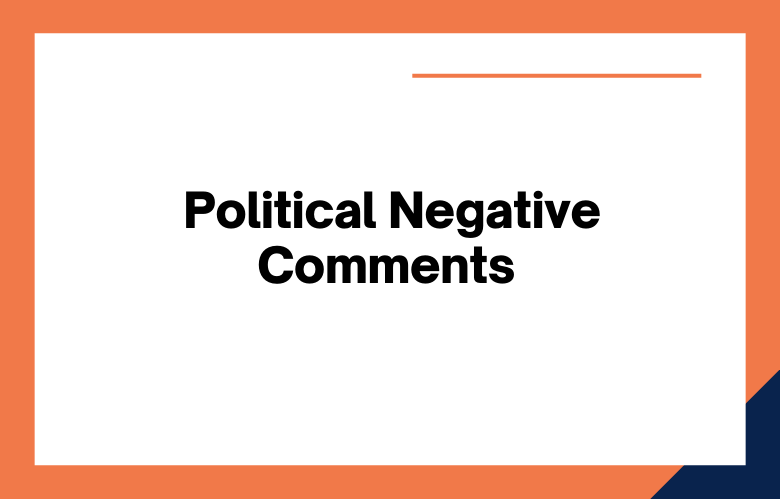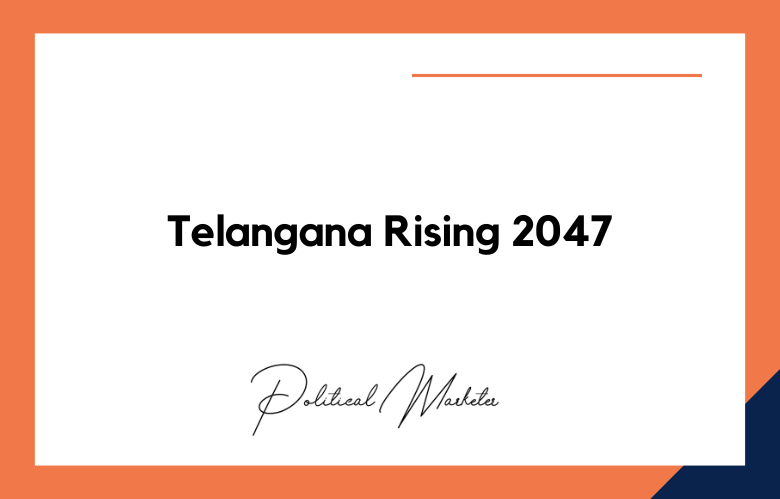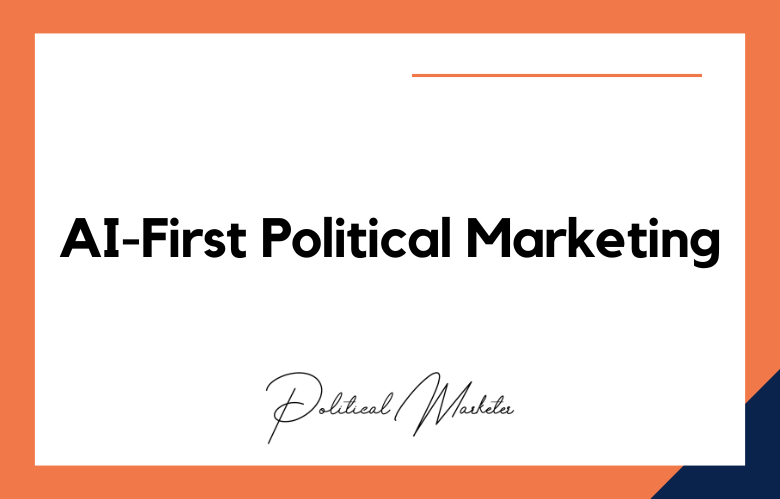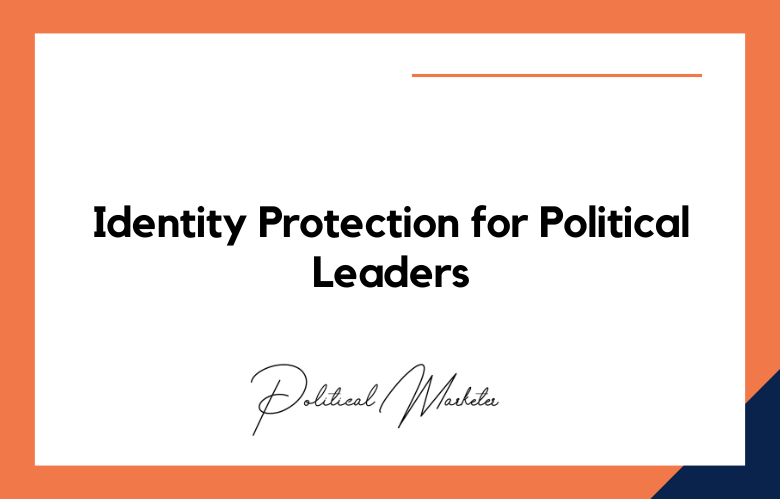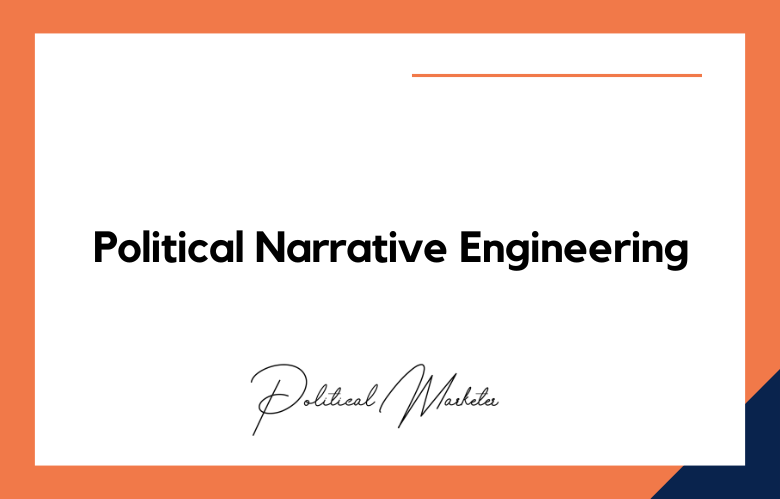Political Negative Comments on Social Media: Political negativity is no stranger to social media. It’s always been a problem and will continue for the foreseeable future. You can’t ignore it, but you can learn how to deal with it like a pro! With these simple tips, you can handle negative comments on social media, move on with your life, and make new friends.
I will share my insights on managing your social media channels when you or your business is the target of a negative comment and provide some tips for what to do if trolls attack you. It’s not easy, but a few things can help.
Negative comments are part of life. You can’t ignore them, so you might as well take the time to learn how to manage them. The first step is understanding what makes people angry and why they say negative things on social media.
Please read this post for ways to deal with political negativity on social media, including tips from a veteran political operative who knows what it’s like to be in politics every day!
What are Political Negative Comments?
A hostile political comment is when someone makes a comment that criticizes one of the current political candidates.
Political Negative Comments are comments that criticize a politician’s policies.
Political Negative Comments are posted about a candidate or party running the government.
How to Manage Political Negative Comments on Social Media Like a Pro
It’s important to understand that negative comments can distract and damage your brand.
The key to effectively managing negative comments on social media is staying positive. If you reply positively, the commenter will be more likely to change their mind about your topic of discussion.
Negative comments will come from different sources, and you need to find a way to deal with these people.
The most important thing to remember when managing political comments on social media is to stay calm. It’s okay if your company receives negative feedback, but you must respond quickly with politeness and professionalism.
Most people have strong opinions about politics. If you’re running a business, paying attention to your customers’ feelings is essential. If you get attacked, remember that not everyone will like what you do or say.
It’s important to stay positive on social media, but sometimes people leave negative comments. Here are some tips for managing criticism effectively.
It would help if you were careful on social media. People watch your every move, so others will respond quickly if you slip up and make a mistake.
How to Monitor Political Negative Comments on Social Media
As a political candidate, you must ensure your campaigns are going well. One of the best ways to see if things are working is by checking what people say about you on social media websites.
You must know how to program your computer to monitor negative comments on social media.
The best way to monitor negative political comments on social media is by using a news feed.
The negativity on social media can damage what we think. Sometimes it’s hard not to get sucked into arguments and political debates, but some ways can minimize the time you spend arguing with others.
A company needs a monitoring tool to monitor negative comments on social media. This way, they can gauge how many people are talking about their brand or product and whether the opinion of those people is positive or negative.
Ways to Manage Political Negative Comments on Social Media Like a Pro
- Ignore the comment
- Respond in a non-aggressive manner
- Share your opinion about the subject matter and explain why you feel that way.
- Report the comment to Facebook if it is offensive or abusive
- Block the person who posted the negative comment
- Find out what your company’s social media policy is
- Remove the comment from public view if it does not violate any of your company’s policies
- Ignore the word altogether, but don’t delete it so you can monitor the user for future negative behavior
- Reach out to the commenter privately and let them know they violated your company’s guidelines
- Don’t take it personally- they’re not talking to you
- Respond with facts, not feelings
- Keep your cool and stay calm in the face of negativity or criticism
- Ignore trolls that are just trying to get a rise out of you
- Respond to negative comments with a positive reply
- Block the person’s profile from your feed if they are persistently posting negativity
- Reply with facts and information about why you disagree with them
- Post articles or videos that show other perspectives on the topic, including those of people who may have different opinions than yours
- Check the source of the comment to see if it is a troll or not
- Respond to all comments with politeness and respect
- Don’t engage in personal attacks on social media, even if you disagree with them
- Ignore those who are posting negative comments about your company on social media.
Conclusion
Managing your brand’s reputation on social media is difficult, especially during an election. Your profile could be attacked by trolls or people disagreeing with your business practices. You can take proactive steps to manage these attacks and ensure they don’t severely impact your company’s public perception.
Controlling what posts appear on search engine results pages helps reduce negative publicity; for example, this includes not responding publicly to negativity, which fuels the fire further! If you need help managing political controversy or any other type of online attack, contact us for a free consultation on how to best assist you before it becomes a problem. We’re here to help!
Managing your online reputation is critical, but it becomes even more crucial when running for public office. You can’t be everywhere at once to work on every negative comment on social media, so we’re here to help with our Political Reputation Management services. We’ll promptly monitor and respond to potential political comments or criticisms while allowing you build relationships with influential people who support you politically. If this seems to benefit your campaign efforts – contact us today!
How to Manage Political Negative Comments on Social Media Like a Pro: FAQs
What Are Negative Comments In A Political Context?
Negative comments in politics include criticism, accusations, trolling, or misinformation aimed at damaging a candidate’s reputation or campaign image.
Why Is It Important To Manage Negative Comments?
Unchecked negative comments can influence public opinion, demotivate supporters, spread misinformation, and damage the political brand.
How Should Politicians Respond To Constructive Criticism?
Constructive criticism should be acknowledged respectfully, with a genuine response that shows openness to feedback and commitment to improvement.
Should Politicians Ignore Trolls And Abusive Comments?
In most cases, yes. Trolls seek attention, and engaging may escalate the situation. It’s best to use moderation tools or block them when necessary.
What’s The Best Way To Respond To Misinformation In Comments?
Quickly correct misinformation with verified facts, share source links, and maintain a calm, professional tone to preserve credibility.
Can Deleting Negative Comments Backfire?
Yes, deleting comments without transparency can appear censorious. Instead, establish clear comment policies and moderate consistently.
How Can A Political Team Monitor Negative Comments Effectively?
Use social listening tools, community managers, and real-time notifications to track and respond to emerging negativity across platforms.
What Role Does A Crisis Communication Plan Play?
A crisis communication plan ensures coordinated, fast, and strategic responses to damaging narratives, helping maintain public trust.
Should Politicians Apologize Publicly When They Are Wrong?
Yes, an honest apology with corrective action demonstrates accountability and often strengthens public respect and credibility.
Can Humor Be Used To Diffuse Negative Comments?
When used wisely, humor can neutralize tension and show confidence. However, it must be respectful and not dismiss genuine concerns.
How Should Politicians Handle Negative Comments During Live Events?
Stay composed, address the issue briefly if needed, and steer the conversation back to your core message or event objective.
What Training Can Help Handle Negative Comments?
Media training, reputation management workshops, and mock press sessions help spokespeople respond effectively and stay on message.
Should Volunteers Be Involved In Comment Moderation?
Yes, trained volunteers can help flag problematic content, answer FAQs, and enforce community guidelines under campaign supervision.
What Is A Comment Moderation Policy And Why Is It Important?
A moderation policy outlines acceptable behavior and content rules. It builds transparency, consistency, and trust in community engagement.
Can Negative Comments Be Turned Into Positive Engagement?
Yes, when responded to respectfully, they offer a chance to clarify positions, show empathy, and convert critics into supporters.
What Tools Help Manage Negative Comments On Social Media?
Tools like Hootsuite, Sprout Social, Brandwatch, and Meta’s moderation features help monitor and manage comments at scale.
Is It Advisable To Disable Comments Entirely On Political Pages?
Only as a last resort. Open dialogue signals transparency. If disabling is necessary, explain why and provide alternative engagement channels.
How Do Political Influencers Deal With Negative Publicity?
They prepare statements in advance, engage their core supporters, and use storytelling to rebuild narrative control.
What Is The Role Of Community Engagement In Handling Negativity?
Proactive community building encourages loyal supporters to counter false narratives and defend the campaign organically.
Can AI Or Automation Help With Negative Comment Detection?
Yes, AI moderation tools can flag toxic language, filter harmful content, and assist human teams in large-scale comment management.
One way to get in touch is by filling out our online form on this site or give us a call at +91 9848321284. Let’s work together today!

